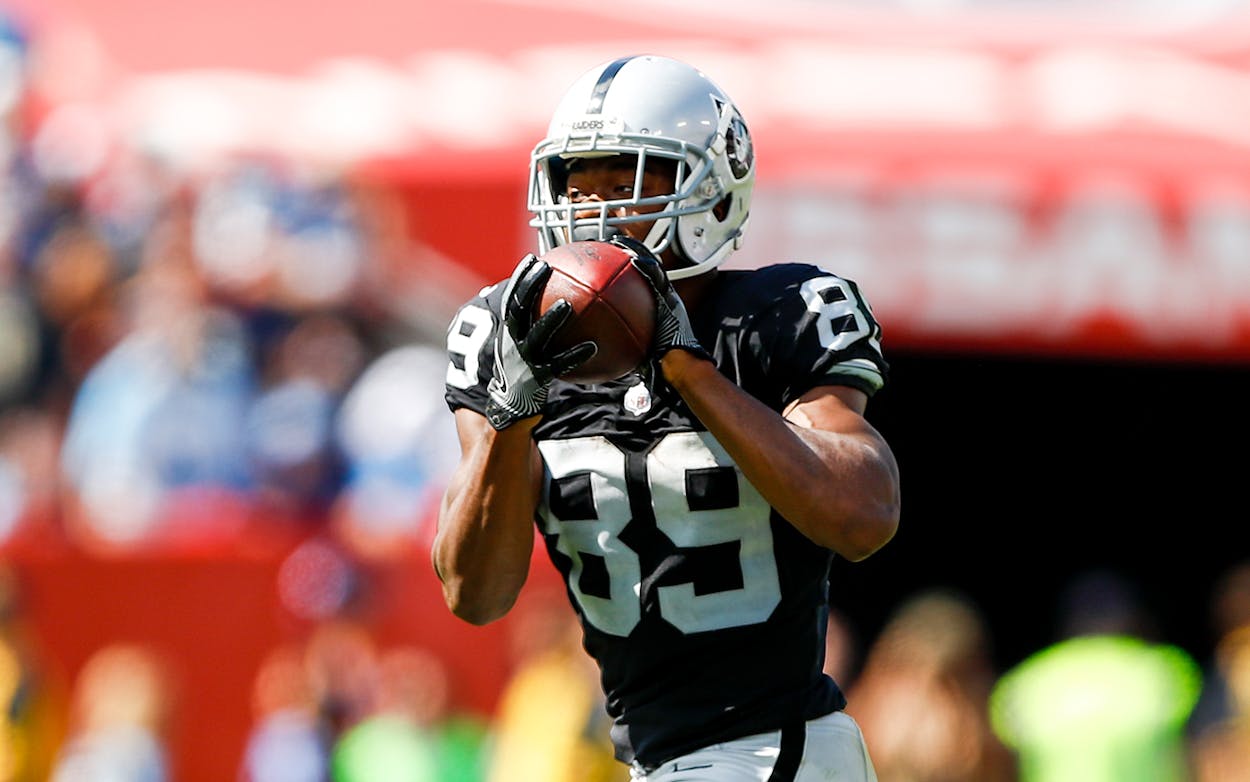On Monday, the Dallas Cowboys traded a first-round draft pick for a veteran wide receiver that another team was desperate to get rid of. This seems to be a recurring prank on fans. In 1999, they gave up two first-rounders for receiver Joey Galloway, who may be best remembered by Cowboys fans for tearing his ACL in his star-helmeted debut—not his fault, of course—which was the beginning of his struggle for relevancy in Dallas. In 2008, the team made a similar deal, giving up a first, third, and sixth round pick to acquire wide receiver Roy Williams from the Detroit Lions. Williams, a former Longhorns standout who rarely had reason for his signature “first down” wiggle in Dallas finished his tenure with the Cowboys with 94 receptions and 13 touchdowns in over 40 games. This time out, they gave up their 2019 first round pick for yet another wide receiver: the Oakland Raiders’ Amari Cooper.
Cooper has been a successful receiver during his time in the NFL. In 2015 and 2016—his first two seasons with the Raiders—he put up more than 1,000 yards and at least six touchdowns in each campaign. But he struggled last year, bringing in fewer than 50 receptions for just 680 yards, and is on pace for similar production so far in 2018. The 2016 version of Amari Cooper is a fine talent, probably worthy of a first-round pick—but the receiver we’ve seen over the past 22 games? Not so much.
Sports media reacted to the trade with widespread derision. This season, the Raiders have been the league’s laughingstock. New head coach Jon Gruden, flush with power after signing a huge contract, overhauled the roster. He traded the team’s best defensive player, Khalil Mack, for a pair of first-round picks—a deal that had a number of suitors—and proceeded to go 1-5 to start the season, bringing accusations that he may have been tanking the season in order to put himself in a better position to build the team he wanted for future seasons.
Only Jerry Jones could make Jon Gruden win a trade
— James Seltzer (@JamesSeltzer) October 22, 2018
A first-rounder for Amari Cooper.
The Cowboys are your friend who pays $179 for a T-shirt that they could have bought at Target for $12.
— Adam Rank (@adamrank) October 22, 2018
Raiders got great value for Amari Cooper. He has struggled at times vs. press coverage, I'm sure many teams would not give up a first-rounder for him.
— Andy Benoit (@Andy_Benoit) October 22, 2018
Meanwhile, on the latest Monday Night Football broadcast, Jason Witten—who is technically not a Cowboy anymore—praised the move, declaring that Jerry Jones and his front office “won” the trade.
- More About:
- Sports
- Jerry Jones








